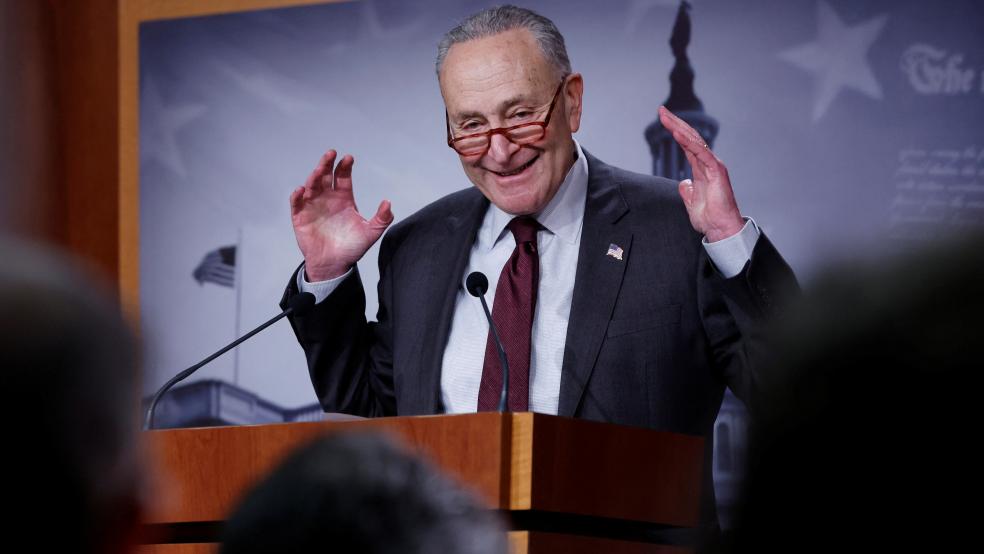With both a winter storm and the Christmas holiday rapidly approaching, the Senate on Thursday raced to pass a $1.7 trillion year-end spending package in a bipartisan 68-29 vote. The so-called omnibus bill to fund the government through September now goes to the House, where Democratic leaders had hoped to approve it tonight but will instead return Friday to pass it.
The House will also look to join the Senate in passing a short-term measure extending federal funding to December 30 and allowing time for the massive, 4,155-page omnibus bill to be processed without triggering a government shutdown.
As a reminder, the year-end package includes $858 billion for defense, $787 billion in non-defense discretionary funding, some $45 billion in additional aid for Ukraine and about $40 billion in disaster relief money. It also contains more than $15 billion for 7,234 earmarked projects. On top of that, it includes health and retirement policy changes, an overhaul of the 1887 Electoral Count Act and numerous other provisions.
The Senate pushed the package through with remarkable speed — though, of course, speed is a relative term and since we’re talking about the Senate it still meant an hours-long series of votes Thursday on 17 amendments leading up to the final approval of the larger package. Politico calculated that the entire vote series took a total of more than four hours, noting that “nothing motivates lawmakers more than the smell of jet fumes before the holiday break.”
The Senate process had hit a snag Thursday night over an amendment proposed by Sen. Mike Lee (R-UT) to extend the controversial Trump -era pandemic policy called Title 42, which allows for the rapid expulsion of migrants. The policy had been set to end this week but was kept in place temporarily by Supreme Court Chief Justice John Roberts while the court considers legal efforts to extend it.
Lee had demanded an up-or-down vote on his amendment, which might have passed the Senate but could have scuttled the whole omnibus package in the House. In a compromise, Senate Majority Leader Chuck Schumer (D-NY) allowed votes on the Lee amendment and a rival one from Sens. Kyrsten Sinema (I-AZ) and Jon Tester (D-MT). The deal gave moderate Democrats an out so they could vote against Lee’s measure. In the end, both amendments failed, clearing a glide path for the larger package to pass.
Schumer celebrated the end result. “We’ve concluded this Congress, one of the most productive in decades, with one of the best omnibus packages in decades,” he told reporters. “And here’s one of the things that amazes me: The amendment process made it better. Usually, when you have a big omnibus, the amendment process makes it worse because the minority is trying to undo a lot of the things in the bill. But here we stood firm and got it done.”
The approved amendments included a measure to protect pregnant workers against discrimination and require employers to allow workers time to breast feed. Other approved amendments would provide $6 billion in compensation for victims of state-sponsored terrorism, $1 billion for the World Trade Center Health Fund for first responders and would allow assets seized from Russian oligarchs to be used for aiding Ukraine.
The bottom line: Congress is set to approve a long-delayed set of 12 annual appropriations bills, with sharp increases in defense and non-defense funding representing a 9% boost to fiscal year 2022 levels. Overall discretionary spending is poised to climb from $1.5 trillion to about $1.65 trillion.
And while the gargantuan year-end package undoubtedly has plenty of provisions worth cheering, it comes months after the fiscal year and was passed via another last-minute scramble — another reminder that the congressional budgeting process has broken down. And the divisions within the Republican Party over the spending package portend some difficulties governing — including some likely legislative showdowns – over the next couple of years.





